A common figure
in classic travel books, the adventurous explorer in search of gold and earthly
paradise is a rare occurrence in Romanian history. We only have a handful of
accounts from the few Romanian travellers of the 17th and 18th
centuries, such as Nicolae Milescu, who wrote The Description of China after
being sent there as an envoy by the Russian Tsar Aleksey Mikhailovich between
1675 and 1678. However, in the 19th
century, works on the exploration of lesser-known regions started to include
Romanian names, and one of these is that of Julius Popper. An engineer,
explorer and cartographer, Julius Popper was born in Bucharest in 1857. He was
the son of an antique trader, bookshop owner, journalist and teacher at the
first school of the Jewish community in Bucharest. Young Julius attended
primary and secondary school in Bucharest and then went to university in Paris,
where he got his engineer diploma in 1879. His first employment was with the
Suez Canal Company. By 1883, he had travelled to the Far East and Alaska. We
talked to journalist Evelin Fonea of the Realitatea evreiasca magazine
in Bucharest, who told us more about the life of Julius Popper:
In 1967, when
Argentina celebrated 150 years since it proclaimed its independence, Julius
Popper, one of the colonising pioneers of Tierra del Fuego, was mentioned among
the people honoured for their contribution to the foundation of the Argentine
state. A daring young man, with a passion for adventure, Julius Popper
travelled to Constantinople, India, China and Japan. He then went to Suez,
Siberia, North America, and, after some short stopovers, he reached Mexico. He
drew up the best map of that country and worked as an editor for a publication
called Diario de los foresteros. From there he went to Brazil, and in
1885 he was already in Argentina, a country that became his second homeland. He
explored the south of Patagonia looking for gold and persuaded Argentina’s
government to support his quest.
The first trip did not produce
satisfactory results for the expedition headed by Popper. A second, more
thoroughly prepared, trip was taken, with better results. Popper settled in
Tierra del Fuego and started his colonising mission. There he established
several gold mines as well as a navigation line between El Paramo and Buenos
Aires. He also built a narrow railway, and his local circulation stamp, issued
in 1891, turned into an extremely valuable item for collectors. During searches
for gold in El Paramo, Popper invented a device to separate gold from seawater.
The invention was patented and used in several countries in South America and
South Africa. The result of his research was presented in articles, studies,
maps, brochures and books, while the French general encyclopaedia called La
Grande Encyclopedie, published in late 19th century, mentions him as
one of the most important explorers of the time. Evelin Fonea recalls other
details about Popper’s expeditions:
In September 1886, Popper set out
on an expedition with two smaller vessels, Madona del Carmine and Maria Luiza.
It was an expedition during which they were faced with many dangers. He carried
out the second expedition in 1888, which was a success. He turned the El Paramo
colony into a town and later became its Governor. He organised the town, issued
a golden coin and printed a stamp with his effigy. Being homesick, he gave
rivers and fields the names of places from his native country, such as Punta
Sinaia, Mount Lahovary, Rio Rosetti, Rio Ureche, Valea Iasilor, Brosteni Park,
etc. What is interesting is that free peasants from Wallachia were among the
colonisers, whose descendants would call themselves ‘hijos de rumanos’, that is
‘children of Romanians’.
Despite being away from Romania for
a long time, Jiulis Popper stayed in permanent touch with his native country.
He was in close contact with the historian and writer V. A. Urechia, an
advocate of Romanian science and a member of the Romanian Academy. Evelin Fonea
tells us more:
In 1887 Popper became a corresponding
member of the Romanian Geographical Society, which collected all of Popper’s
scientific notes thanks to the then education minister V.A. Urechia. Popper
later offered Urechia a gift, an album with sealskin covers and a plaque
inscribed with the words Tierra del Fuego, made of the gold he found on
the beach in Punta Sinaia.
Iulius Popper died on June 7th,
1893, aged only 36. He was found dead in his room in Buenos Aires, with the
probable cause of death being heart arrest. He was buried in a common grave in
the city’s municipal cemetery. His personality and his journeys have inspired
many fiction writers. One of them was Radu Tudoran, whose book Full Speed
Ahead! became very popular and eventually inspired a film. In 2001, when the
125 years since the establishment of the Romanian Geographic Society were
celebrated, Popper’s conferences were included in a volume entitled
Extraordinary Journeys, alongside other important names of Romanian
geographic research.
